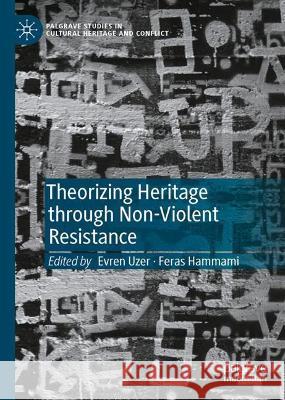Theorizing Heritage Through Non-Violent Resistance » książka
topmenu
Theorizing Heritage Through Non-Violent Resistance
ISBN-13: 9783030777074 / Angielski / Twarda / 2022
Kategorie BISAC:
Wydawca:
Palgrave MacMillan
Seria wydawnicza:
Język:
Angielski
ISBN-13:
9783030777074
Rok wydania:
2022
Wydanie:
2021
Numer serii:
000793507
Oprawa:
Twarda
Wolumenów:
01
Dodatkowe informacje:
Wydanie ilustrowane











